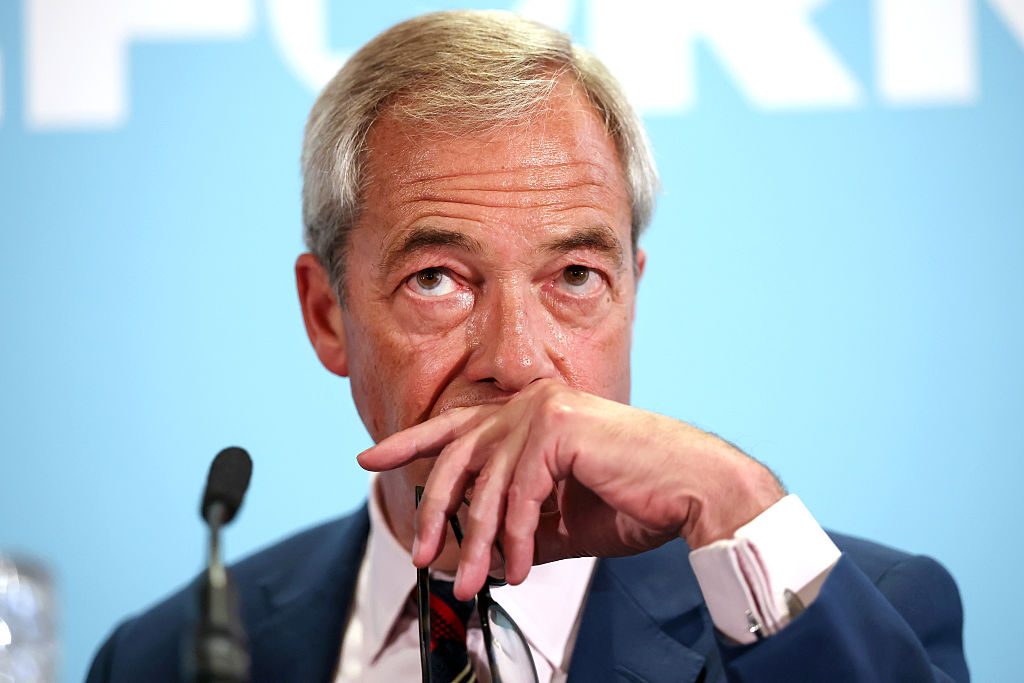Nigel Farage faces numerous challenges in preparing for government. One issue that has received surprisingly little attention is the potential for audience capture — the phenomenon whereby public figures adjust their statements and output to cater to the perceived preferences of their fanbase, leading to a feedback loop which can amplify extreme views — to drag his MPs in different directions, sending the party out of his control.
The intense media spotlight has given smaller Reform figures the opportunity to amass substantial online followings on the Right. If these figures lack the experience and discipline of Farage — a seasoned, strong-willed politician with over two decades in the arena — this momentum can quickly become problematic, as the case of James McMurdock, until recently a Reform MP, illustrates.
McMurdock has been accused by Conservative MP Ben Obese-Jecty of starting an “N-tower”, a social media practice in which six individuals sequentially post single letters to collectively spell out a racial slur, aimed at Sky News lobby journalist Mhari Aurora. McMurdock claims the screenshot, which shows him starting the tower by posting a capitalised “N”, is fabricated.
The practical effect of the much-vaunted “vibe shift” is to push Reform UK closer to the far-Right — a process driven more by social media dynamics than formal policy. The party’s lesser-known figures, energised by online attention, are especially susceptible to this audience capture, which appears to have ensnared McMurdock. In a party with few gatekeepers and minimal institutional checks, this creates a genuine risk that Reform ends up becoming a vessel for whatever sentiment is trending most, regardless of strategic coherence or reputational cost.
Former Reform MP Rupert Lowe, for example, built a sizeable following among the so-called “online Right” by advocating mass deportations well before Farage — and the broader public — endorsed the idea. Farage, by contrast, took a more measured approach, repeatedly denying the need for such policies until recently, after the debate had matured and YouGov polling indicated growing public support. Lowe may have been ahead of the curve, but Farage waited until the public was in favour before adopting it.
The barrier between Reform and the far-Right appears increasingly porous. While Farage has shown a degree of effectiveness in dispatching problematic individuals — Lowe being the most notable example — when they threaten his party’s public image, his control is not absolute. For example, while Farage has consistently distanced himself and the party from activist Tommy Robinson, former deputy leader Ben Habib is now collaborating with the English Defence League founder. Farage would never have allowed such a meeting of minds to take place within the party but, beyond his iron grip, the party ecosystem appears highly susceptible to audience capture.
This is where the real challenge emerges. Farage may be a seasoned operator, but the centrifugal forces of online radicalism and audience capture exert pressure on lesser-known Reform figures who lack his instinct for reputational self-preservation. Even if Farage and his deputy Richard Tice kick them out of the party, Reform UK’s reputation may still be threatened by such closeness to far-Right politics.
Farage can take some comfort in the fact that many of these figures entered the party during the last general election, ahead of which the party experienced major vetting problems and had no infrastructure to speak of. Now that a Reform government appears a serious prospect, fixing those structural problems, more than filling the party’s policy vacuum, may be his priority.











Join the discussion
Join like minded readers that support our journalism by becoming a paid subscriber
To join the discussion in the comments, become a paid subscriber.
Join like minded readers that support our journalism, read unlimited articles and enjoy other subscriber-only benefits.
Subscribe